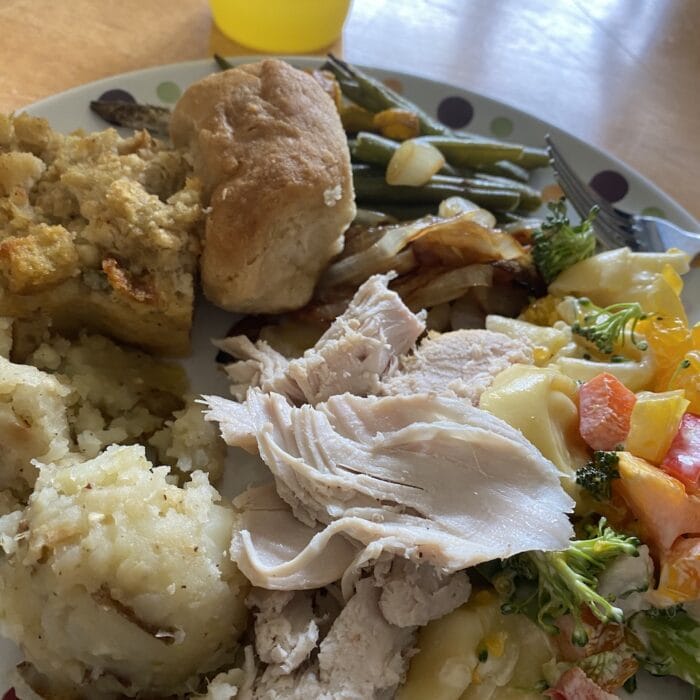The Heart of the Home: How Dinner Conversations Strengthen Family Ties

- By Andrea Towers Scott, PhD
Dinner’s on!
Dinner is ready and in pots on the stove. Everyone grabs a plate, serves themselves, and heads to the living room. Dad turns on the show we’ve been watching. We say grace and eat while we watch the show and talk. Yes, we talk while we watch the show. When the conversation gets loud or intense we pause the show so we can all focus on the conversation. After dinner, the boys help clean up and get ready for bed or do homework.
While I’d love to say that we regularly eat our dinner at the dining room table, that’s just not the reality for my family. We DO eat as a family nearly every night, however. And that’s generally a homecooked meal, even if “homecooked” means reheated leftovers!
Why bother?
Lots of families eat fast food in the car while racing from one extracurricular to another and that works for them. Yet not EVERY night is spent rushing from one event to another. Too often those nights still get relegated to fast food with everyone in their own spaces.
It doesn’t have to be like that, however. As a family communication specialist, I can tell you that one of the primary connection points in families is mealtime. And it’s hard to connect when crammed in the car.
That’s why my family does our very best to eat at home together, even if it’s 9:30 pm! When we eat together, we can improve our communication skills and forge relationships beyond the pre- and post-school task conversations. Our dinnertime conversations allow us to really catch up on each other’s lives and show interest. I love that I can learn what really happens in my sons’ friendships during dinner time.
I also love that these dinnertime conversations allow my husband and I to model our core values for our kids. Between talking about our own lives and the choices we make and leading our kids to make good choices, we can demonstrate the Christian values we want to embody like honesty, hard work, and loyalty.
The third benefit to having family dinners like this is support. We can offer our kids support in various decisions and relationships when we know what is going on. When we ask key questions we can begin to understand what’s happening in our kids’ lives. Then we can find out how they feel about what’s happening and encourage them to make good decisions or praise them when they already did make good decisions.
The effort is worth it!
Do our dinner-time conversations always look picture-perfect? No! I wish I could say they do, but the reality is sometimes our boys are just silly. Or we are rushed and eat quickly so everyone can do homework or get ready for bed.
The effort we make to have dinner at home and talk through it is so worth the time and effort we put into it. It takes time to have a meal ready and effort to engage with everyone at the end of a very long day, but the blessings far outweigh the investment of time and energy!
What does your dinnertime routine look like? Do you get time to sit together and enjoy each other’s company? What would you change if you could? Let us know!

Dr. Andrea Towers Scott is an author and speaker. In addition to being a Christian Communicator graduate, she has been teaching communication skills for over 20 years. She’s been married 30 years and they have two wonderful sons – a teen and a young adult. Together, they have a working farm with lots of animals. Her passion is helping people take their marriages from ‘blah’ to breathtaking. You can find her on her website.

Subscribe to receive the weekly Stories from the Supper Table post in your email and download this free resource, 32 Printable Conversation Cards. These cards feature questions hand-selected to encourage lively conversation and build connections around the table.
Do you have a story of your own to share? Check out this post to learn more about the heart behind the series and the link for submissions.




